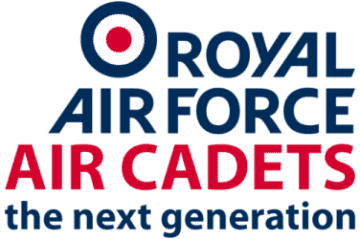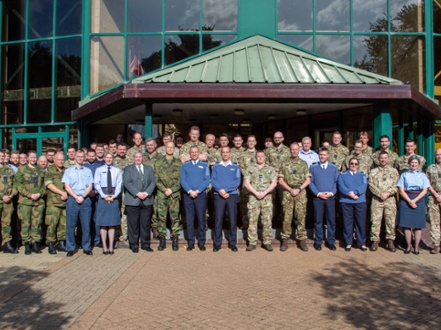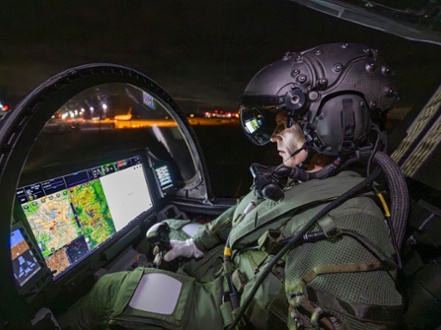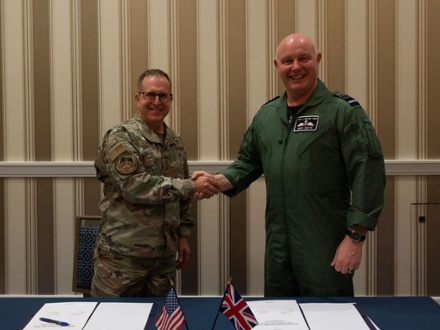The NATO Joint Capability Group for Unmanned Aircraft Systems (JCGUAS) held their Autumn meeting, hosted by the Royal Air Force, in London.
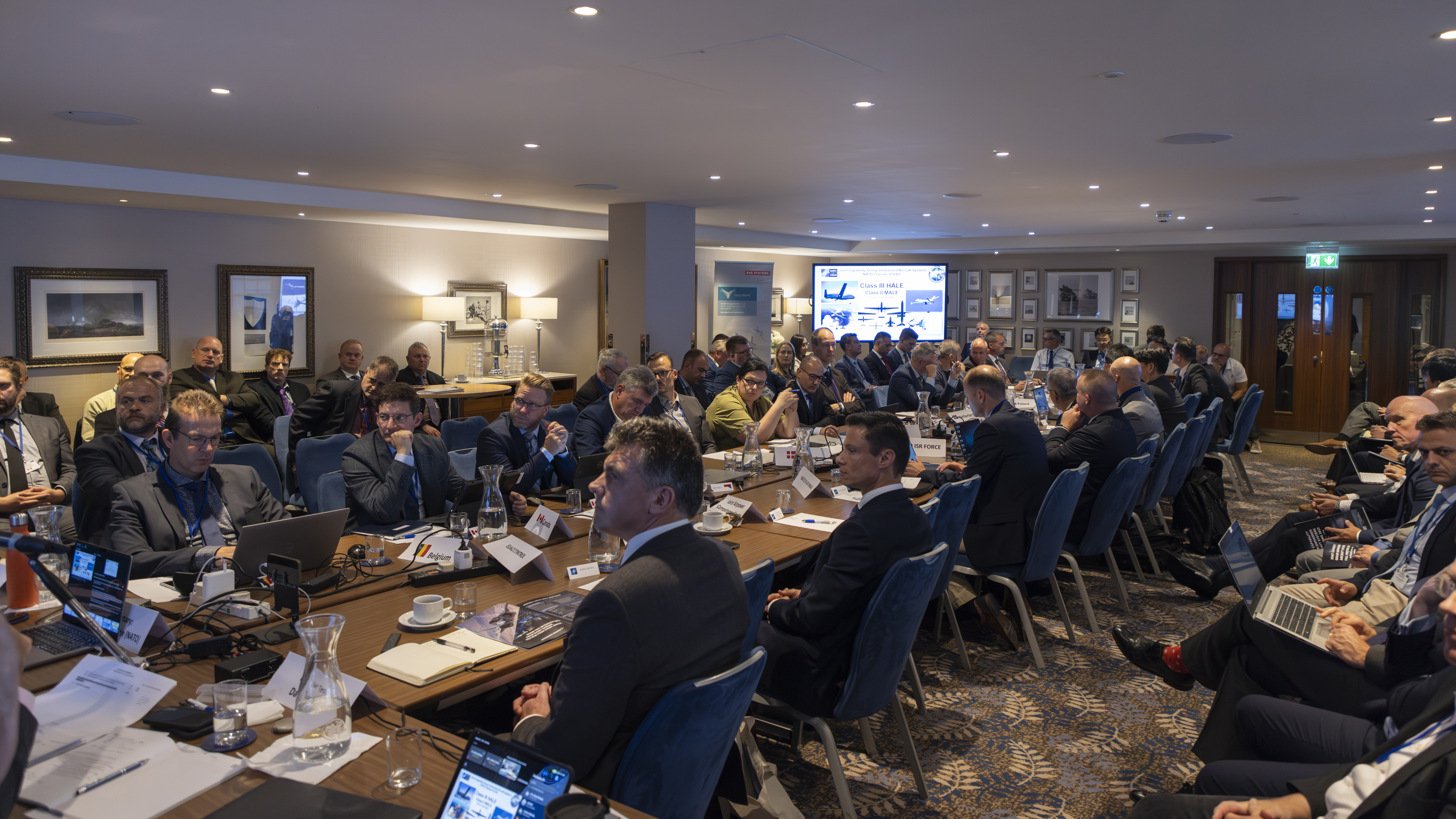
This was the first JCGUAS plenary session where industry partners were integrated within the main plenary discussions. This was also the first meeting where NATO Partner, the Republic of Korea attended in person, reflecting broader global interest. At the meeting the JCGUAS finalised the world’s first ‘Sense & Avoid’ standard for remotely piloted air vehicles.

The conference was attended by over 150 delegates representing air, land, maritime, procurement, technology, and operational experts within and beyond the NATO alliance.
The JCGUAS seeks to enhance NATO UAS coherence, interoperability, and capability collaboration and reports to National Armament Directors and the NATO Military Committee. With a regular attendance of over 100 personnel, the JCGUAS’ focus is standardisation of Uncrewed Aircraft Systems within the alliance, as well as incorporating new and emerging technologies, including autonomy and artificial intelligence, providing exciting opportunities for the RAF and the alliance.
“I’m delighted to be hosting the JCGUAS meeting here in London. It is important for the RAF and NATO to have forums such as this to discuss the current and future role of uncrewed aircraft systems and agree standards for their use across NATO.”
Wing Commander Long
Head of Protector RG Mk1 International Strategy for the RAF
Wing Commander Long also heads the MQ-9B International Cooperative Programme, which is a community of nations that have procured, are in the process of procuring or are actively considering procurement of the MQ-9B (called Protector in the UK).
“Our Autumn meeting in London delivered an important NATO-wide standard on Sense and Avoid as well as providing a forum in which industry, government, academia, and military were brought together to enhance development of related standards.
Augmenting established NATO Uncrewed Aircraft Systems Airworthiness Standards, with the new Sense and Avoid standard, facilitates allied adoption of Remotely Piloted Aircraft Systems, assisting allies’ ability to prove that these aircraft are airworthy, safe, reliable, and predictable.”Mr McKenzie
NATO International Staff-UAS Officer and part of the JCGUAS Leadership
The JCGUAS is the source of technical and operational UAS information for NATO and addresses UAS issues including acquisition design, employment, the demonstration of UAS System capabilities, identification of a common approach to airspace management, complementary use among UAS Categories, operator training and standards, and doctrine including tactics/operational procedures.
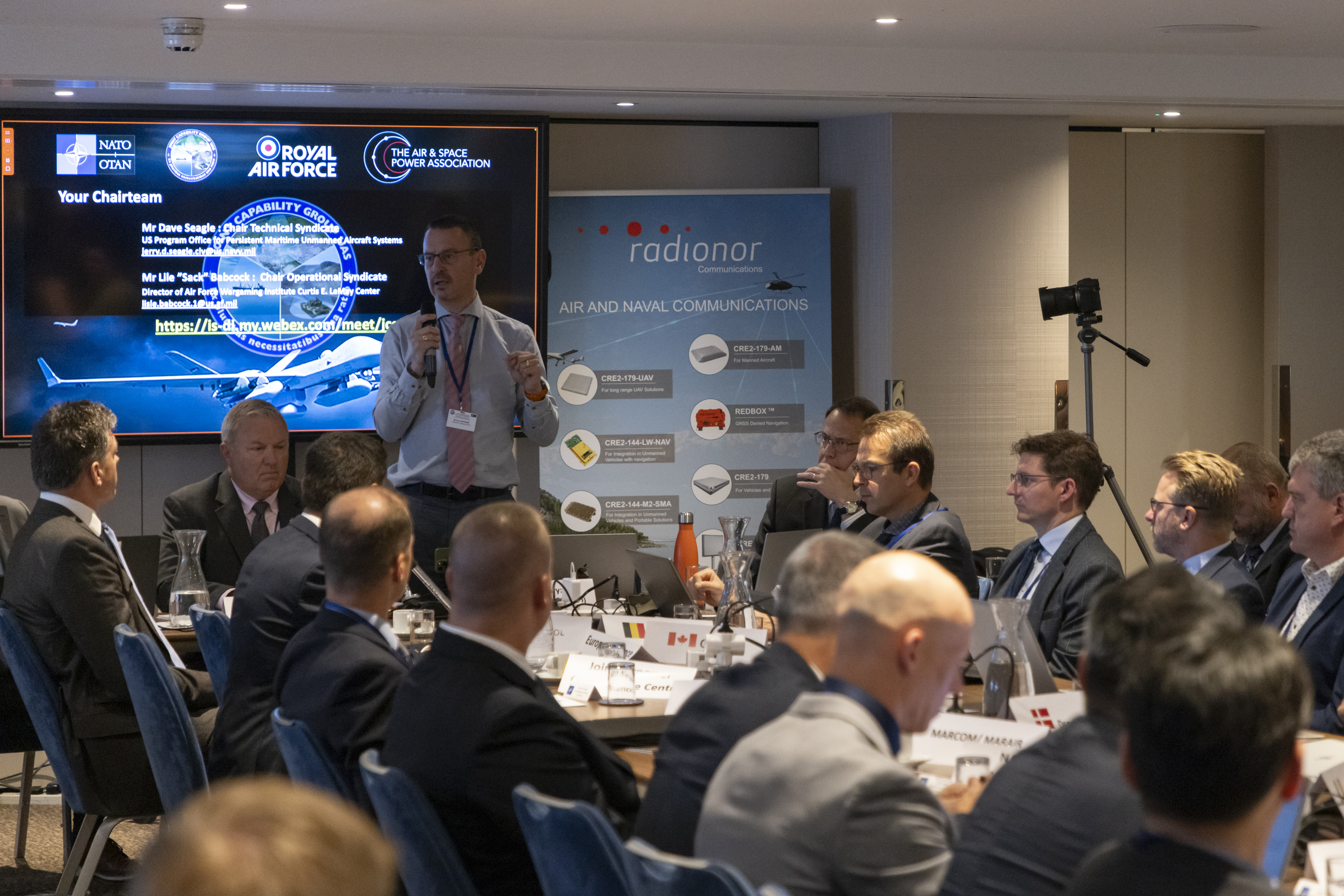
The Group also looks to enhance and facilitate interoperability, develop a common standard of data transmission, and address the provision for complimentary uses of different fleets, tactics, techniques, and procedures.
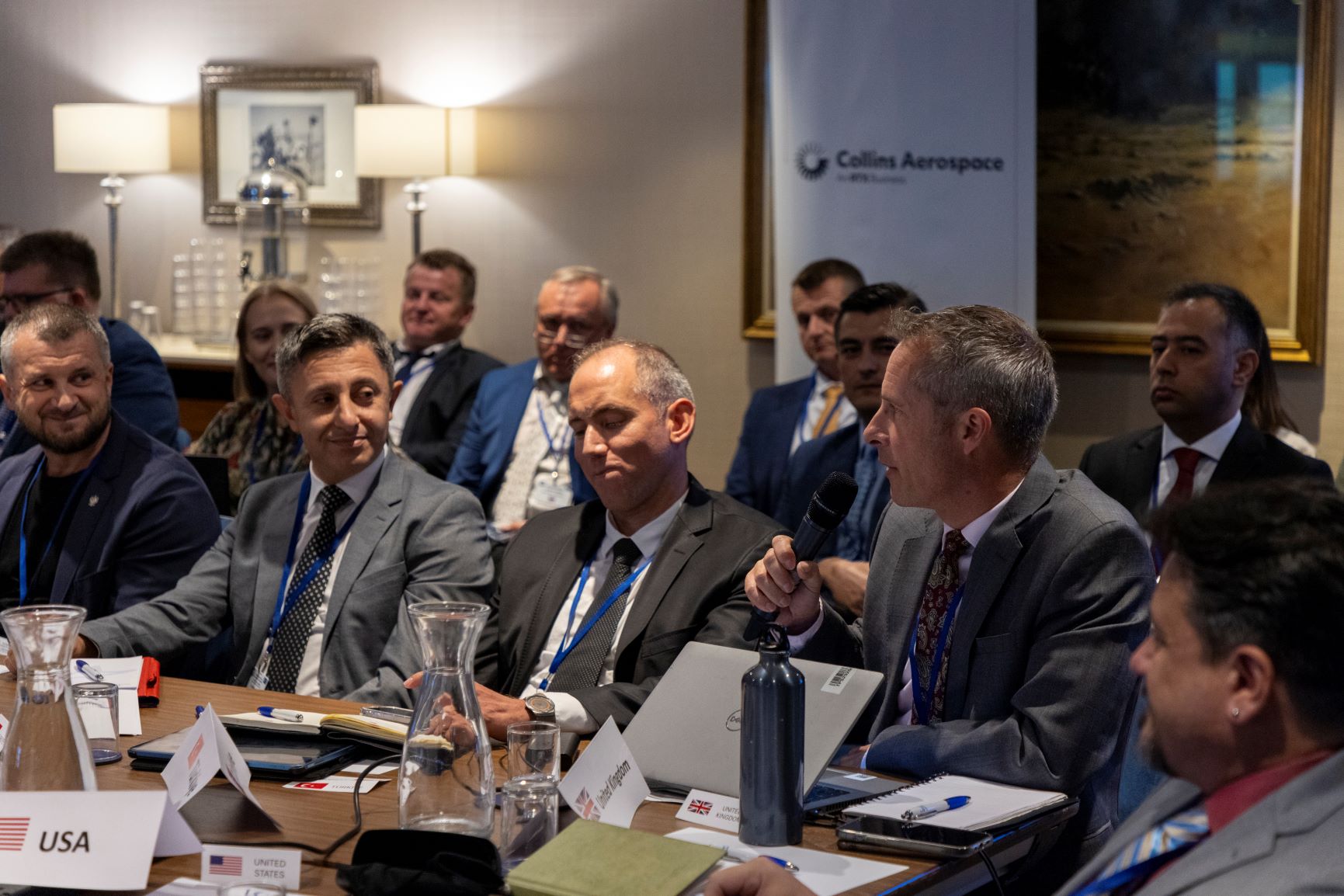
The overall aim of the group is to improve the operational effectiveness of UAS in NATO and coalition environments by ensuring availability, interoperability, utility, and operational integrity of UAS.

